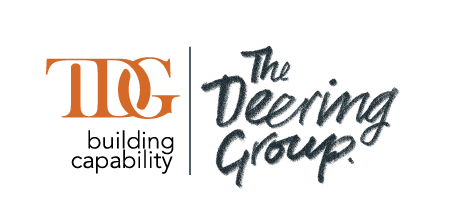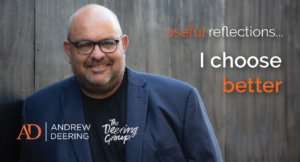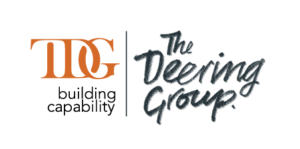I have had the pleasure of working with a vast array of people and organisations. Typically, they have one thing in common: they want to be the best version of themselves. To me, this ambition is admirable, even useful. I think it indicates a deep desire to be of high service and achieve extraordinary standards.
But what does ‘best’ actually mean?
I’d offer that the framework of best is a relative one. In a business context, organisations usually want to be world-class, exceptional in their industry. They consider “best” as being at the top of a perceived ladder; a structure that allows them to say to the world they are number one. It’s like the athlete who wins the race, who can then declare that she or he is the world’s best in that event.
Their performance (and elite standard) is final and absolute. But is it?
What we do not see is that at times, once the athlete has won their event, reached their mark, they sometimes stop striving at this level. They have achieved their goal, they cease their pursuit of improvement in this space.
They may continue the sport but they have achieved their goal, their best.
This can happen in a business context, too. Once an organisation or individual has reached their perceived level of best, they stop. They pause, resting in the fact that they are the best, and don’t try to move beyond that level.
Be it conscious or not, these companies seem to stall there.
They hit a plateau, and risk others superseding them, passing them by.
Companies like Kodak, who were at the top of their industry, the best, where are they now?
They chose to not look at ways to become better, but instead to rest in their ‘best’.
And in this choice, they are no longer at their best. They cease their evolution, their growth…
But perhaps the question to ask is, were they ever at their best?
Can anyone ever truly reach and maintain a standard of best?
Can the full and infinite potential and possibility of anyone individually or collectively ever be achieved?
I wonder if “best” is the metric we should be striving for.
I wonder if, instead, we should focus on better.
Better is an interesting word. It may appear to be less powerful than best, but the truth is, it isn’t. Better has no ceiling, it is limitless; a ladder that goes up and up, allowing you to reach and extend, continuously. It allows you freedom to always be more, do more.
All of us – as individuals, teams and organisations – enter a continuous, unending process of improvement when we strive to be better.
This doesn’t mean we shouldn’t set goals or celebrate milestones.
We should always reflect on our achievements along the way and recognise our successes. This gives us confidence and motivation, fuelling our drive. But we must also be mindful that we don’t rest on our laurels or hit pause. We shouldn’t become so reflective that our power and potential stall or cease altogether.
We must always ask ourselves, “What can I do to be better, what can we do to be better?”
To me, better is the key to ongoing evolution. It’s a never-ending investigation of the possibilities and potential we all harbour as individuals, teams and communities.
Better is what allows us to go to places we previously didn’t think possible. And, in my experience, better always takes us to heights far beyond best’s reach.
The statement I offer to people, and to you today, is that “best is the enemy of better”.
Best can put the ceiling in place that sees a finite stop for you and what you do, who you are, and all you can be.
What do you think?
How could you and your organisation benefit by focusing on better rather than best?
I’d love to hear your thoughts.


